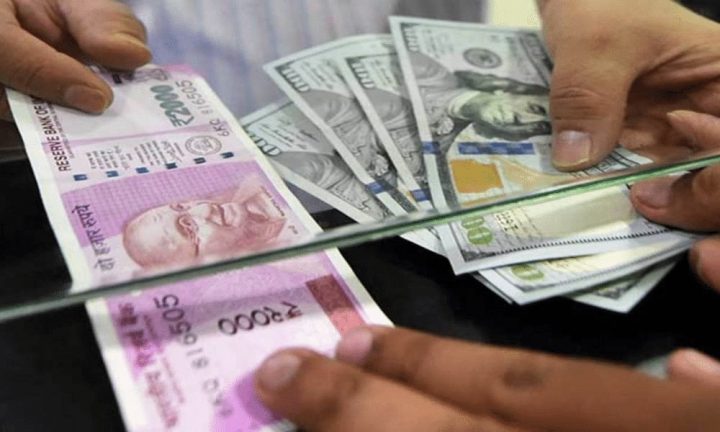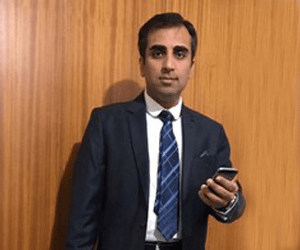Summary: Learn how to exchange foreign currency in India effortlessly! Whether you are a tourist visiting abroad for a vacation or a student planning to study abroad, understanding the currency exchange process is essential.
Be it for a family trip or a work-related trip, you must have felt the need to do currency exchange at some point. In India, exchanging foreign currency has made great strides, and there are new methods available in the market to do so. Foreign currencies are available at some of the major banks, RBI-authorized money changers, airports, and online forex platforms.
Based on where you’re from in India, exchanging foreign currency can be a lot different. Money changers can be found in local market neighborhoods in metropolitan areas. Now you can book a forex order on online forex platforms as well. But it is very important to analyze all the options available and choose the best one for you.
With this article, we’d like to put all your queries to bed. Get to know about the several different options available for carrying out the currency exchange process in India. Also, get to know about the documents you need to have in order to do currency exchange. So let’s get started.
Different Options for Currency Exchange in India
In India, currency exchange is available via banks (RBI-issued AD-I licenses) and money changers (Both AD-II and FFMC license holders).
Here are some of the options for doing currency exchange in India:
Banks
Banks are usually the first option that pops up in the heads of people when they need foreign currency notes. However, it is only possible if you have an account with an Indian bank.
It is also worth noting that a lot of the banks usually do not stock foreign currency in the form of notes, so your visit to the bank might be of no use at all. Instead, Banks usually keep forex cards because with that, they can keep a higher profit margin. Additionally, the process can be time-consuming
RBI-approved money changers
Money changers provide better exchange rates than banks to entice customers as their business is solely focused on currency conversion. While they can be a better solution than banks, they still involve rate haggling, which can be frustrating for customers.
The money changers are available in all major cities and towns throughout India. However, keep in mind that not all money changers are licensed by the Reserve Bank of India. Make sure you’re transacting with a licensed forex broker. Doing so will ensure that your transactions are regulated and secure. Some unlicensed dealers might offer seemingly attractive rates but pose risks of counterfeit currency or hidden fees.
Airports
You can carry out the currency conversion process at airports as well but we would not advise you to do so. Since the currency exchange vendors at the airport are well aware that passengers come to them in a hurry to buy foreign currency, you end up paying about 10-15% extra on what you would usually do had you done it via other options.
As a result, getting currency exchange done at airports could potentially end up being a very costly deal for you. It’s better to use them as a last resort.
Online foreign exchange platforms
Currency exchange can be easily done by choosing online forex platforms like BookMyForex. The platform compares the currency rates across multiple money changers in your nearby area and get you the best rates possible for the currency you wish to buy/sell.
With a 24*7 online booking option, placing an order is easy and hassle-free; no long queue, no hidden charges, and no lengthy process. You can upload the documents on the portal itself and the currency will be delivered to your doorstep within the same day. All this can be done while you are sitting on your couch.
People are now entirely switching to these online forex platforms. Who wouldn’t want to grab the best deal possible, right?
How You Can Exchange Foreign Currency Online with BookMyForex?
Booking a currency exchange order on BookMyForex is fairly simple. Simply follow the steps given below to avail the best exchange rates in India:
Step 1: Order Details: Simply go to the BookMyForex website and start by selecting your city and the currency you want to buy or sell. Enter the amount and click on “Book This Order”
Step 2: Customer Details: Enter details such as your name, contact number, email ID, PAN number, countries you are traveling to, and the start & end dates of your trip
Step 3: Eligibility Check: Specify the purpose of your trip & check your eligibility. Upload documents such as PAN card, Passport, Air Tickets, etc
Step 4: Order Processing: Select an existing delivery/pickup address or enter a new one. Make sure to review your order details before making the payment.
Documents Required for Money Exchange in India
You will need to submit KYC (Know – your – customer) documentation when looking to buy or sell forex through your bank or a chosen money changer. This is in accordance with RBI regulations, which all banks and approved exchange platforms must follow.
Here is the list of documents that you will be expected to submit when you are buying foreign currency:
– Original and valid passport (both front and back page)
– Valid visa for the country of travel (except where VISA on arrival applies)
– Confirmed ticket-showing travel within 60 days of taking foreign exchange
– PAN Card
In addition to the documents listed above, the service provider may also request other supporting documents depending on the purpose of your trip.
Here is the list of documents that you will be expected to submit when you are selling foreign currency:
– Indian Passport (both front and back page)
– PAN Card
In most cases, the above-mentioned documents will suffice, however, it is recommended that you confirm this with your vendor.
Things to Watch Out for While Doing Currency Exchange in India
Here are a few things to be considered when placing your currency exchange order:
1. Plan Ahead to Avoid Last-Minute Rush: Ensure you obtain foreign currency well in advance of your travel date to prevent any last-minute hassles. As per RBI guidelines, you can buy currency 60 days prior to your travel date.
2. Opt for RBI Authorized & Trusted Providers: Select a reputable forex vendor authorized by the RBI to avoid counterfeit currency risks. Research thoroughly before making your choice.
3. Know the Currency Exchange Limits: Indian citizens are subject to an annual cap of 250,000 US Dollars or its equivalent in foreign currency for foreign trips, as per the RBI’s Liberalized Remittance Scheme.
4. Carrying Cash Abroad: While traveling abroad, you can carry up to 3,000 USD or its equivalent in cash. Utilize forex/travel cards or traveler’s cheques for the remaining funds.
5. Avoiding Airport Currency Exchange: Do keep in mind that you could end up paying 10-15% extra at airports while doing currency exchange, so it is best to avoid doing currency exchange at the airports.
6. Returning to India with Foreign Currency: The maximum amount of foreign currency notes permitted is USD 3,000, and if this amount is exceeded, it must be reported at the airport by filling out a Currency Declaration Form.
7. Encashing Leftover Currency: An Indian citizen has the right to hold up to 2,000 US dollars in foreign currency or its equivalent, according to RBI. Foreign currency that exceeds this cap must be encashed within 6 months of arrival in India.





























Leave a Reply